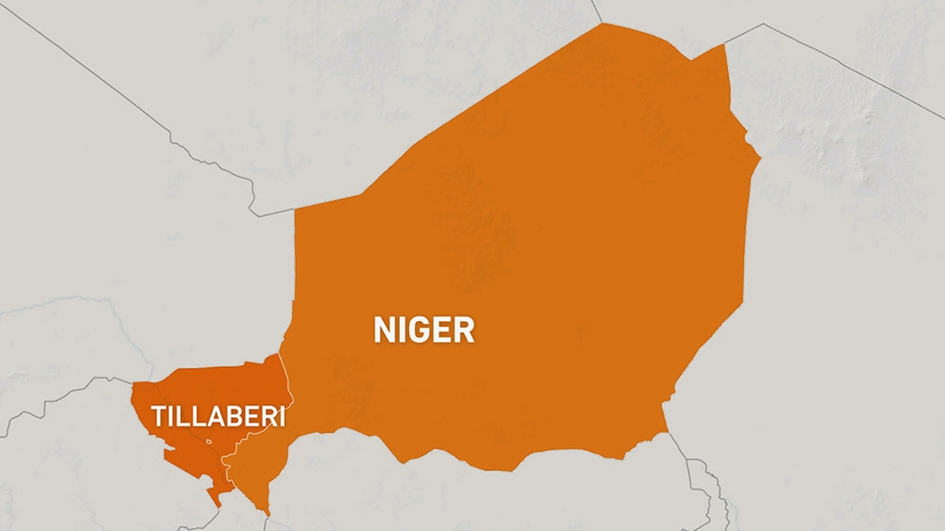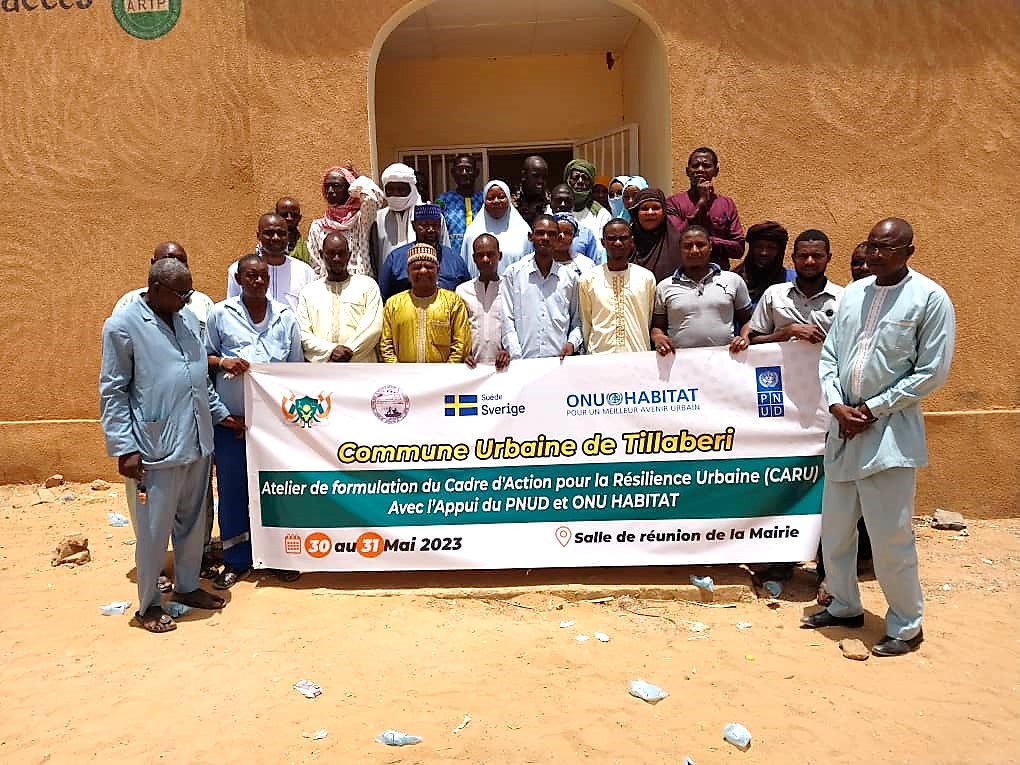Actions for a Resilient City: Tillaberi Commits to CityRAP
June 1, 2023

Tillaberi region
Tillaberi, a city with a population of 30,000 located some 100km from Niamey in southwestern Niger, is taking proactive steps to address the challenges it faces. The region it belongs to covers an area of approximately 98,000km² and has been severely affected by environmental disasters and ongoing violence. These challenges have led to severe food insecurity and the migration of approximately 36,800 internally displaced persons and refugees from neighboring countries such as Mali and Burkina Faso. In response, the small city of Tillaberi has introduced the City Resilience Action Planning (CityRAP) tool, which is developed by UN-Habitat and co-funded, for the Sahel region, by UNDP with support from the Swedish government as part of the "Inclusive, Safe, Resilient, and Sustainable Human Settlements in the Sahel" initiative.
CityRAP is a comprehensive and participatory approach designed to enhance urban resilience. It empowers local governments and urban stakeholders to play a key role in resilience planning, ensuring that their valuable knowledge and expertise are utilized. The CityRAP process in Tillaberi includes customized training sessions, exercises, and activities to help local authorities initiate their resilience action plans. By actively involving the government and urban stakeholders, CityRAP harnesses their ideas and expertise. Recently, a workshop organized by UNDP in Niger and UN-Habitat was held in Tillaberi on May 30–31, with the participation of around forty local representatives, including eight women, as well as the Ministry of Humanitarian Action and Disaster Management.
Resilience Framework for Action
The next step in Tillaberi's journey to building resilience is the development of a Resilience Framework for Action. This framework will guide local actors, including local authorities, municipal technical services, traditional and religious leaders, youth organizations, people with disabilities, university, community radios, and civil society, in adapting and implementing the CityRAP tool with minimal external intervention. By using participatory methods such as self-assessments, risk mapping exercises, and cross-sectoral action planning, Tillaberi aims to create an effective resilience plan that builds on local knowledge and priorities.
Tillaberi is thus strengthening its capacity to face and recover from shocks and constraints such as natural hazards, the impacts of climate change, rapid urbanization, and social vulnerabilities by adopting the CityRAP tool and developing a Resilience Framework for Action. This approach to resilience-building sets the city on a path towards a more sustainable and secure future for its residents.
It is important to acknowledge the challenging context in which the region of Tillaberi operates. Recent analysis reveals alarming statistics for food security in Niger, including an estimated 1.9 million children aged 6 to 59 months suffering from acute malnutrition nationwide in 2023. Although this represents a 12% decrease from the previous year's estimates, cases of severe acute malnutrition and moderate acute malnutrition remain significant, with approximately 430,500 severe and 1.4 million moderate cases respectively.
The implementation of CityRAP is supported by UNDP's Sahel Resilience Project, which aims to strengthen risk-informed development in seven Sahelian countries. The Sahelian cities that have committed to CityRAP in collaboration with UN-Habitat are Bargny (Senegal), Kaédi (Mauritania), Nioro (Mali), Kongoussi (Burkina Faso), Tillaberi (Niger), Labondo (Nigeria), and Mao (Chad).

Local authorities at CityRAP training
African Union, UN-Habitat, and UNDP's collaboration on Smart Urban Resilience
Through the Sahel Resilience Project, a Spatial Development Strategy has been developed for the Sahel region. Led by government representatives from western Sahel countries such as Burkina Faso, Chad, Mali, Mauritania, Niger, Nigeria, Senegal, and northern Cameroon, this strategy utilizes territorial analysis to provide guidance in finding solutions that promote local resilience and foster cross-border connections. Its aim is to address the humanitarian, development, and peace-building needs of the urban population, which amounts to 160.5 million people.
Furthermore, UNDP and UN-Habitat are partnering with the African Union Commission to strengthen urban resilience and climate risk management across Africa through the Joint Regional Programme on Smart Urban Resilience. This programme plays a crucial role in operationalizing the Africa Urban Resilience initiative on the continent. It supports inter-sectoral coordination within the African Union Commission and advocates for resilience-building among member states and regional economic communities.
Resilience has emerged as a vital concept in urban planning, offering a strategic approach to tackle the multifaceted challenges faced by cities in areas such as nature, economy, society, physical infrastructure, and institutions. Urban resilience refers to the capacity of an urban system and its components to maintain or quickly recover desired functions in the face of disruptions, adapt to change, and transform systems that impede present or future adaptability.

 Locations
Locations

